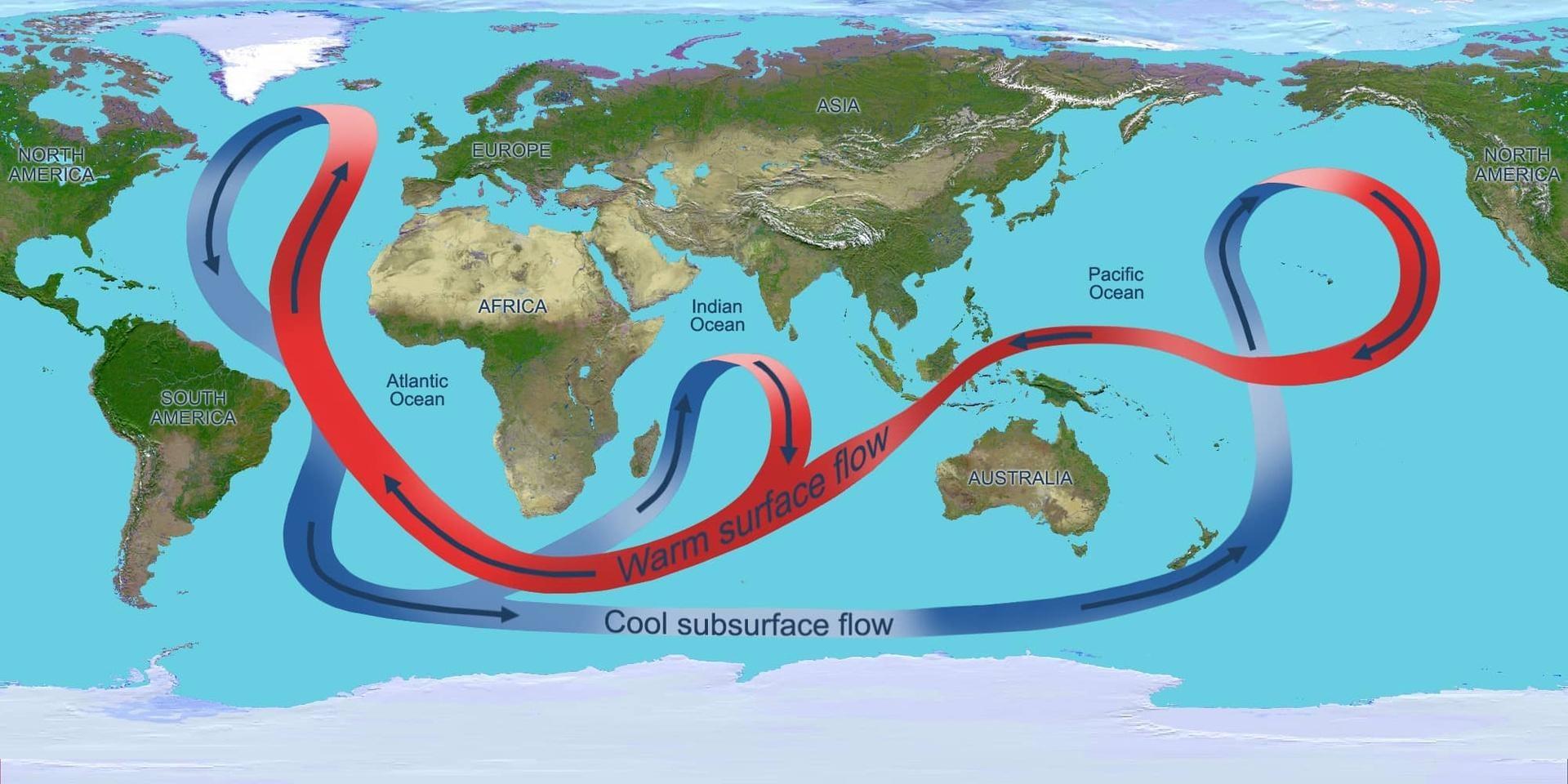New Study Shows the Gulf Stream Could Be Changing


A new study shows a massive change is happening to the Atlantic Ocean circulation system that powers the Gulf Stream, an ocean current flowing off the North Carolina coast which is vital to weather systems and fisheries.
Researchers say the system is at its weakest in more than a millennium and that climate breakdown is the cause.
At issue is what’s called the Atlantic Meridional Overturning Circulation. It’s one of the world’s largest ocean circulation systems and can best be imagined by picturing a giant whirlpool stretching across the entire Atlantic Ocean.
Warm, salty water flows northward along the East Coast of the U.S., carrying heat from the tropics. The Gulf Stream, which is what the current is called in this area, flows about 20 miles off the North Carolina coast.
But as current reaches the North Atlantic, around Greenland it cools, and the cool, salty water become dense enough that it sinks deep beneath the surface.
The water then swings back southward and travels all the way to the Southern Hemisphere, submerged, where it makes its way to the Antarctic as part of a global system of ocean currents.

The system plays a vital role in the climate because it redistributes heat. In fact, it’s known as the global ocean conveyor belt. It’s primarily responsible for moderating Europe’s climate.
That’s the way the system is supposed to work. But the study shows the circulation is weakening because climate change is speeding the melting of Arctic ice, creating huge freshwater pulses from Greenland, and spawning heavier rain events. It all combines to make northern water more fresh and less salty. That means the water isn’t as dense, so it isn’t sinking, and the current is slowing.
This isn’t the first-time scientists have warned about a weakening of the circulation system. But the new study cites 11 sources of “proxy” evidence of the circulation’s strength, including patterns of ocean temperatures, microorganisms in seafloor mud and fisheries data. Scientists say nine of the 11 data points show a clear trend.
“While the evidence isn’t direct, the proxies are strong enough that when taken together it is clear the current is changing and that is a worry,” said Ruoying He, Leader of the Ocean Observing and Modeling Group and a Professor in the Department of Marine, Earth and Atmospheric Sciences at North Carolina State University.
First a slower Gulf Stream could speed the rate of sea level rise because it would alter the sea level topography. That’s right, the sea is about one meter higher farther out at sea than along the coast. A slower gulf stream would raise the sea level.
The slowing Gulf Stream could also threaten North Carolina’s fishing industry. As the current races along the continental shelf, it bring nutrient rich colder water up from the deep ocean. That feeds creatures lower on the food chain, which is turn feeds larger and larger sea life.
“Our location along the Gulf Stream creates a biological hot spot for sea life, which has help create a vibrant fishery,” said He. “If the nutrients are gone, the fish may have to travel farther to find food and not be so easily caught right off the coast.”
He adds the study isn’t a reason to panic, but it does show the importance of addressing climate change.
“We’re already seeing an increase in the number and severity of hurricanes, which is another result of a warming ocean, so the problem is real,” He said. “The implications of a dramatic change in ocean circulation just keep getting worse.”